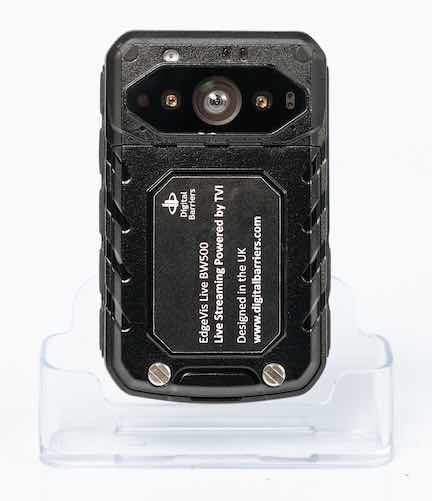Finding ways to protect workers
In Running Your Business
Follow this topic
Bookmark
Record learning outcomes

Since the beginning of the pandemic, essential retailers have become a flashpoint for violence and abuse directed at their staff, with much of the conflict arising from employees having to enforce social distancing measures. The Union of Shop, Distributive and Allied Workers (USDAW) has reported that nearly 90 per cent of its 450,000 members suffered verbal abuse last year, illustrating the scale of the problem.
With the current lockdown measures in force, pharmacies are one of the few businesses that remain open to the public, keeping people supplied with essential products and medical supplies. So, how can pharmacy owners better protect their team members against unruly customers?
There needs to be a bigger focus on de-escalation training for non-security staff, to make sure they are better equipped to deal with different types of confrontation. But technology can also play an important role.
For instance, Digital Barriers offers MDX, a rapidly deployable system that automatically detects whether or not people are wearing face masks and manages the number of customers and patients within a premises at any one time.
Already piloted at Slough Borough Council’s offices, it works by screening individuals as they approach a store, and automatically alerting them if they need to put on a face mask or wait for somebody else to leave before they can enter.
A system like this would mean pharmacies no longer need to dedicate a staff member at the entrance counting customers as they come in or checking for face coverings. It allows smaller teams to have better oversight of customers and work with more efficiency, and it can screen multiple entrances simultaneously.
Real-time connectivity allows staff or security guards to be notified instantly via a connected device should they need to review a specific alert, rather than being tethered to the entrance all day. This is a particularly valuable asset for pharmacies with limited manpower – even more likely at the moment, given the number of people currently having to self-isolate.
body worn cameras are great for ‘after the fact’ evidence gathering, whilst also acting as a deterrent
This approach also means that employees are no longer required to act as the first line of defence against customers intent on ignoring social distancing rules. They are kept at a safe distance while a situation is resolved – only having to intervene as a last resort.
People counting and mask detection are great tools for reducing the likelihood of confrontation or assault, but they can’t guarantee that staff won’t have to deal with a violent or abusive customer. Adding body worn cameras can further bolster security and keep employees safe.
 At their most basic level, body worn cameras are great for ‘after the fact’ evidence gathering, whilst also acting as a deterrent for aggressive individuals. However, body worn cameras with live-stream capabilities are invaluable for increasing real-time situational awareness. For example, if an incident occurs, the wearer can press the alert button, immediately streaming audio and video back to the monitoring station, allowing supporting staff to organise an appropriate response.
At their most basic level, body worn cameras are great for ‘after the fact’ evidence gathering, whilst also acting as a deterrent for aggressive individuals. However, body worn cameras with live-stream capabilities are invaluable for increasing real-time situational awareness. For example, if an incident occurs, the wearer can press the alert button, immediately streaming audio and video back to the monitoring station, allowing supporting staff to organise an appropriate response.
With tensions running high across the UK and little sign of when the current lockdown measures might ease, it is important for businesses to put more emphasis on keeping staff safe. Investing in more advanced security technology, such as mask detection and people counting solutions or live-streaming body worn cameras, can give retail staff the peace of mind they require to carry on safely with their jobs, while reducing the risk of potentially dangerous altercations with frustrated or uncooperative customers who don’t want to abide by the rules.

Using these types of solutions, in conjunction with more comprehensive de-escalation training, means essential workers will be safer, while keeping stores Covid-secure. This will enable pharmacies to keep providing crucial medical supplies and services when they’re needed most.
